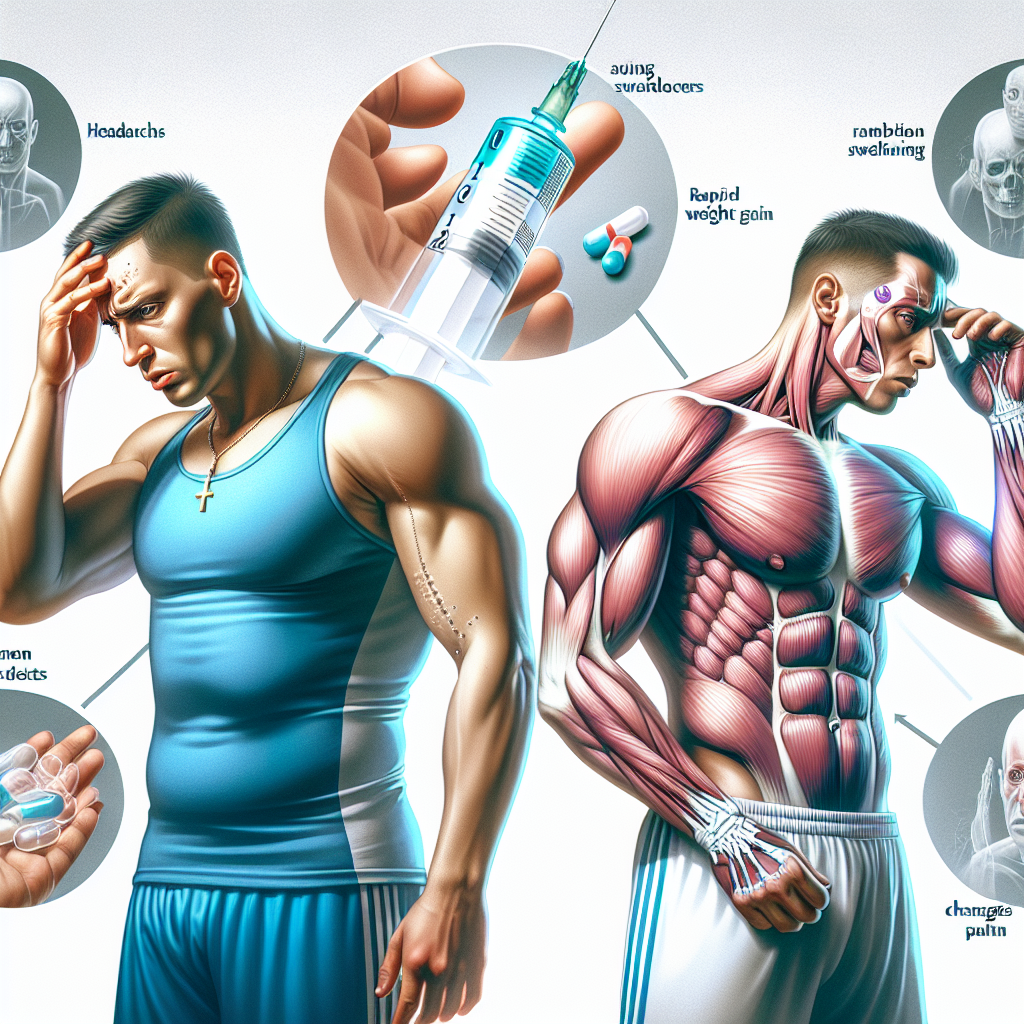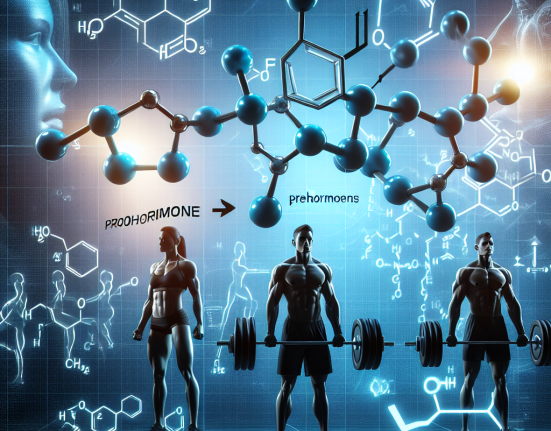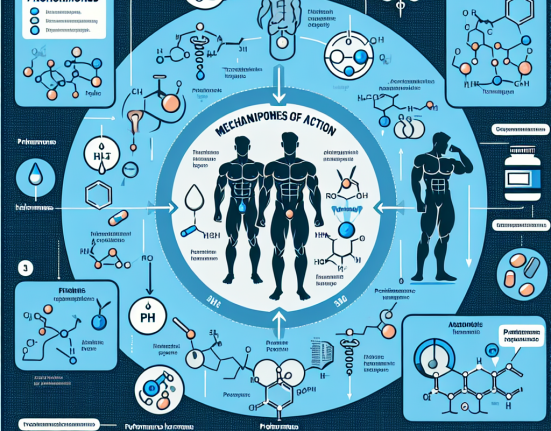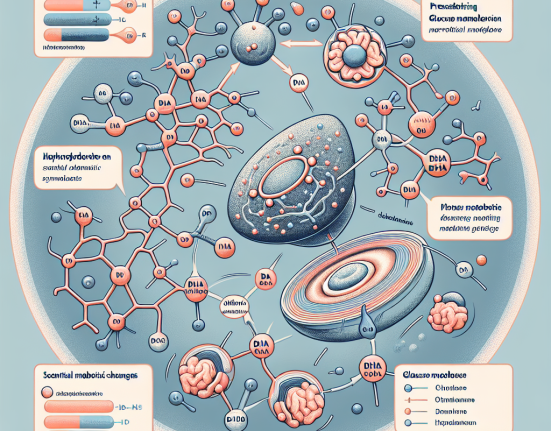-
Table of Contents
- Side Effects of Oxymetholone Injection in Professional Athletes
- Pharmacokinetics and Pharmacodynamics of Oxymetholone
- Side Effects of Oxymetholone Injection
- Cardiovascular Effects
- Hepatotoxicity
- Endocrine Effects
- Psychological Effects
- Other Side Effects
- Real-World Examples
- Expert Opinion
- Conclusion
- References
Side Effects of Oxymetholone Injection in Professional Athletes
Oxymetholone, also known as Anadrol, is a synthetic anabolic steroid that has been used in the treatment of anemia and muscle wasting diseases. However, it has gained popularity among professional athletes as a performance-enhancing drug due to its ability to increase muscle mass and strength. While it may provide short-term benefits, the use of oxymetholone injection in professional athletes has been associated with numerous side effects that can have serious consequences on their health and career.
Pharmacokinetics and Pharmacodynamics of Oxymetholone
Oxymetholone is a derivative of dihydrotestosterone and is classified as a Schedule III controlled substance by the United States Drug Enforcement Administration (DEA). It is available in oral and injectable forms, with the injectable form being more potent and having a longer half-life of approximately 8-9 hours (Kicman, 2008). The drug works by binding to androgen receptors in the body, stimulating protein synthesis and increasing nitrogen retention, leading to an increase in muscle mass and strength (Kicman, 2008).
While oxymetholone has been used in the medical field for the treatment of anemia and muscle wasting diseases, its use in professional sports is considered to be doping. The World Anti-Doping Agency (WADA) has banned the use of oxymetholone in sports due to its performance-enhancing effects and potential health risks (WADA, 2021).
Side Effects of Oxymetholone Injection
The use of oxymetholone injection in professional athletes has been associated with a wide range of side effects, both short-term and long-term. These side effects can have serious consequences on the health and career of athletes, and it is important for them to be aware of these risks before using the drug.
Cardiovascular Effects
Oxymetholone has been shown to have negative effects on the cardiovascular system, including an increase in blood pressure and cholesterol levels (Kicman, 2008). This can put athletes at a higher risk of developing cardiovascular diseases such as heart attacks and strokes. In a study conducted on male bodybuilders, it was found that the use of oxymetholone led to a significant increase in blood pressure and a decrease in HDL (good) cholesterol levels (Hartgens & Kuipers, 2004).
Hepatotoxicity
Oxymetholone is known to be highly hepatotoxic, meaning it can cause damage to the liver. This is due to its 17-alpha-alkylated structure, which allows it to pass through the liver without being broken down, leading to liver toxicity (Kicman, 2008). In severe cases, this can result in liver failure and even death. In a study conducted on male bodybuilders, it was found that the use of oxymetholone led to a significant increase in liver enzymes, indicating liver damage (Hartgens & Kuipers, 2004).
Endocrine Effects
Oxymetholone can also have negative effects on the endocrine system, which is responsible for hormone production and regulation in the body. The use of oxymetholone can lead to a decrease in testosterone production, which can result in a range of side effects such as decreased libido, erectile dysfunction, and infertility (Kicman, 2008). In a study conducted on male bodybuilders, it was found that the use of oxymetholone led to a significant decrease in testosterone levels (Hartgens & Kuipers, 2004).
Psychological Effects
The use of oxymetholone has also been associated with psychological effects, including mood swings, aggression, and irritability (Kicman, 2008). These effects are commonly referred to as “roid rage” and can have serious consequences on an athlete’s personal and professional life. In a study conducted on male bodybuilders, it was found that the use of oxymetholone led to a significant increase in aggression and irritability (Hartgens & Kuipers, 2004).
Other Side Effects
In addition to the above-mentioned side effects, the use of oxymetholone has also been associated with other adverse effects such as acne, hair loss, and gynecomastia (Kicman, 2008). These side effects can have a negative impact on an athlete’s physical appearance and can also affect their performance and confidence.
Real-World Examples
The use of oxymetholone injection in professional athletes has been a controversial topic in the world of sports. There have been numerous cases where athletes have been caught using the drug and have faced serious consequences.
In 2018, Russian boxer Alexander Povetkin tested positive for oxymetholone just days before his scheduled fight with Anthony Joshua. As a result, the fight was cancelled, and Povetkin was banned from competing for one year (BBC, 2018). This incident not only affected Povetkin’s career but also tarnished his reputation as a professional athlete.
In another case, American sprinter Marion Jones admitted to using oxymetholone during her career, which led to her being stripped of her Olympic medals and facing a two-year ban from competition (BBC, 2007). This not only affected Jones’ career but also had a negative impact on the sport of track and field.
Expert Opinion
According to Dr. John Hoberman, a leading expert in the field of sports pharmacology, the use of oxymetholone in professional athletes is a serious issue that needs to be addressed. He states, “The use of oxymetholone in professional sports not only gives athletes an unfair advantage but also puts their health at risk. It is important for athletes to understand the potential consequences of using this drug and to make informed decisions about their health and career.”
Conclusion
The use of oxymetholone injection in professional athletes has been associated with numerous side effects that can have serious consequences on their health and career. From cardiovascular effects to endocrine effects, the use of this drug can have a negative impact on an athlete’s physical and mental well-being. It is important for athletes to be aware of these risks and to make informed decisions about their use of performance-enhancing drugs. As experts in the field of sports pharmacology continue to study the effects of oxymetholone, it is crucial for athletes to prioritize their health and well-being over short-term gains in performance.
References
BBC. (2007). Jones admits to using steroids. Retrieved from https://news.bbc.co.uk/sport2/hi/athletics/703






